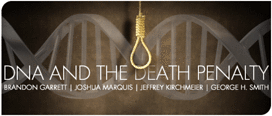Lead Essay
Professor Brandon Garrett discusses the strengths and weaknesses of DNA as evidence. DNA offers a high degree of certainty in the cases where it is available, but in many cases, like that of Troy Davis, the DNA evidence just isn’t there. Individual exonerations are nonetheless suggestive of a wider pattern of wrongful convictions throughout the criminal justice system. It is difficult to say how large this pattern is, but DNA evidence has certainly made us aware of certain problems that existed prior to its use. Does this increase or decrease our faith in capital punishment? And where will public opinion settle? Garrett asks but does not fully answer these questions.
Response Essays
Joshua Marquis points out that prosecutors, not defense attorneys, first demanded the introduction of DNA testing. Defense attorneys fought it—until they realized that they could sometimes use the public’s confusion about the tests to produce doubt in jurors’ minds. Still, DNA secures many more convictions than exonerations. Taken as a whole, Marquis argues that DNA evidence shows our criminal justice system to have a vanishingly low rate of wrongful convictions. He readily grants that even a tiny number of wrongful convictions is too many, and of course we should not let the guilty go free. As a result, he recommends still more extensive DNA recordkeeping and testing.
Jeffrey Kirchmeier grapples with the thorny, inescapable problem of human error. He notes that DNA evidence has offered us a way to test other forms of evidence, such as eyewitness testimony and police lineups. But he moves quickly from these to still harder questions. If jurors can err on matters that admit of an objective answer, then what of the subjective questions they must also answer? The choice between capital punishment and life in prison is itself one of these subjective decisions, and it too may be flawed. Unfortunately, we have no way to test it.
George H. Smith reviews some of the key philosophical questions that have been raised about capital punishment. He discusses the views of several thinkers, including Jeremy Bentham, Nathaniel Branden, and Immanuel Kant. He also references Cesare Beccaria, who doubted the social utility of the death penalty. Even if DNA does offer certainty in the matter of guilt, Smith suggests that there may be independent and controlling reasons to reject capital punishment.

